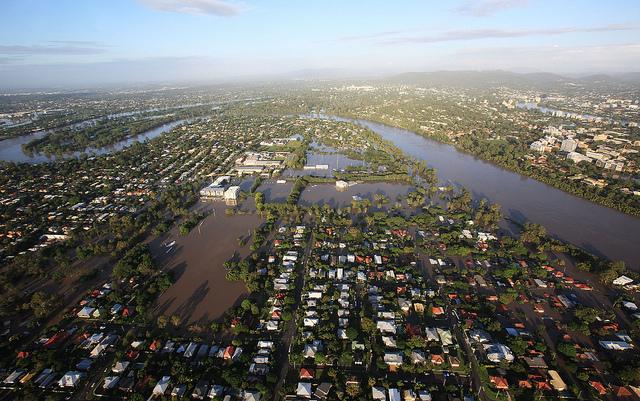Andrew Nikolic, the federal member for Bass and a member of the Parliamentary Joint Committee on Intelligence and Security, recently argued that we should now ‘regenerate the seeds of community interaction, the known wellspring of community resilience’.
He proposed two national community service schemes to advance national resilience: the first would focus on getting young people to enter areas like community support services and environmental management, while the second would enlist employers’ support to attract and keep young people in employment. The first proposal sounds somewhat similar to the UK’s National Citizen Service which gives all 16 and 17 year olds the chance to take part in activities that build skills for work and life and culminates in a team project to help the community.
I’d like to suggest a variation of Nikolic’s proposals that was set out in an ASPI paper I co-authored last October on national resilience.
Australia’s world standard emergency volunteer effort is under threat from dwindling recruits. But we should change the tide with an emergency management volunteer program.
The contribution of volunteers to reducing losses from disasters is well-recognised, but the spring may be drying up: the practice of people being volunteers for decades has mostly disappeared. We need some clever ideas to attract and retain these people to maintain Australia’s world standard in volunteer effort.
At the same time, the number of young people not in education, employment or training is increasing, as is the number of older (50+) workers who are unemployed and less likely to find new employment.
State emergency service cadet programs offer one way of engaging both younger and older community members in effective community-centred activities. But another option is to create an emergency management volunteer program (EMVP).
The EMVP would be a one-year program during which participants work in a volunteer organisation, gaining and practising skills applicable in emergencies, including within organisations active in the welfare and recovery side of emergency management.
The EMVP would give people an avenue to volunteer, but without demanding a long-term full-time commitment from them. Like the Australian Defence Force Gap Year program but tailored for the emergency management sector, the initiative would pair individuals with volunteer organisations based on their interests and suitability. It would introduce a common national approach to the training of volunteers, which would enable them to be used cross-jurisdictionally.
An EMVP could also assist in retraining long-term unemployed people of various ages. Participants might receive benefits at a higher rate than the Newstart allowance.
Some conditions of eligibility would be mandatory, such as not being in education, employment or training for six months before an application and being a recipient of Newstart support.
It might also be viable to extend EMVP opportunities, with appropriate streams of activity, to people on disability pensions.
The costs of a pilot EVMP wouldn’t be significant; a rough cost estimate for the program can be calculated from the ADF’s Gap Year program. Aside from the salaries paid to participants, the cost of running the ADF’s Gap Year program is around $4 million per year (about $5 million for the first year and $3 million per year for subsequent years).
Given the resources required to train military cadets, EMVP expenses shouldn’t be more than the running costs of the ADF’s Gap Year program.
A pilot program offered to 1,000 participants could be run for $4 million for the first year. That would cover a Newstart supplement as an incentive for individuals to take up the program.
An additional supplement of $80 extra per fortnight (approximately 15% of the first four Newstart categories) would equate to around $2 million for 1,000 participants in a pilot year.
This amount would leave a remainder of about $2 million to offer in grants to organisations to train and resource EMVP participants, equivalent to around $2,000 per participant. This should cover all expenses incurred by organisations that take on EMVP participants, giving them an incentive and support.
I concur with the federal member for Bass that ‘what Australia needs now, more than additional bureaucratic architecture—even at the local level—is new ideas. Even too many is good; let public discourse sift the wheat from the chaff.’ An EMVP is one such initiative.
